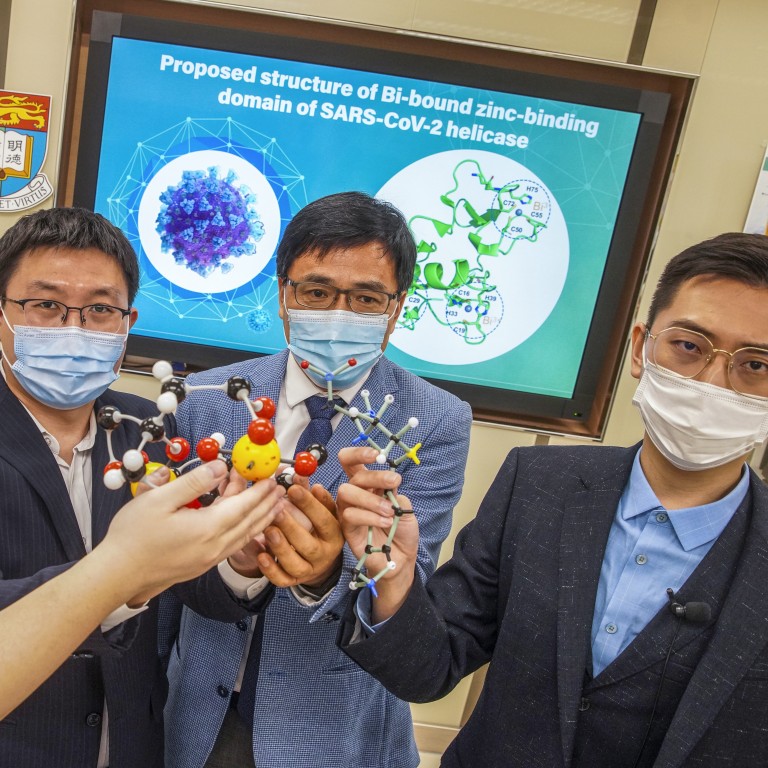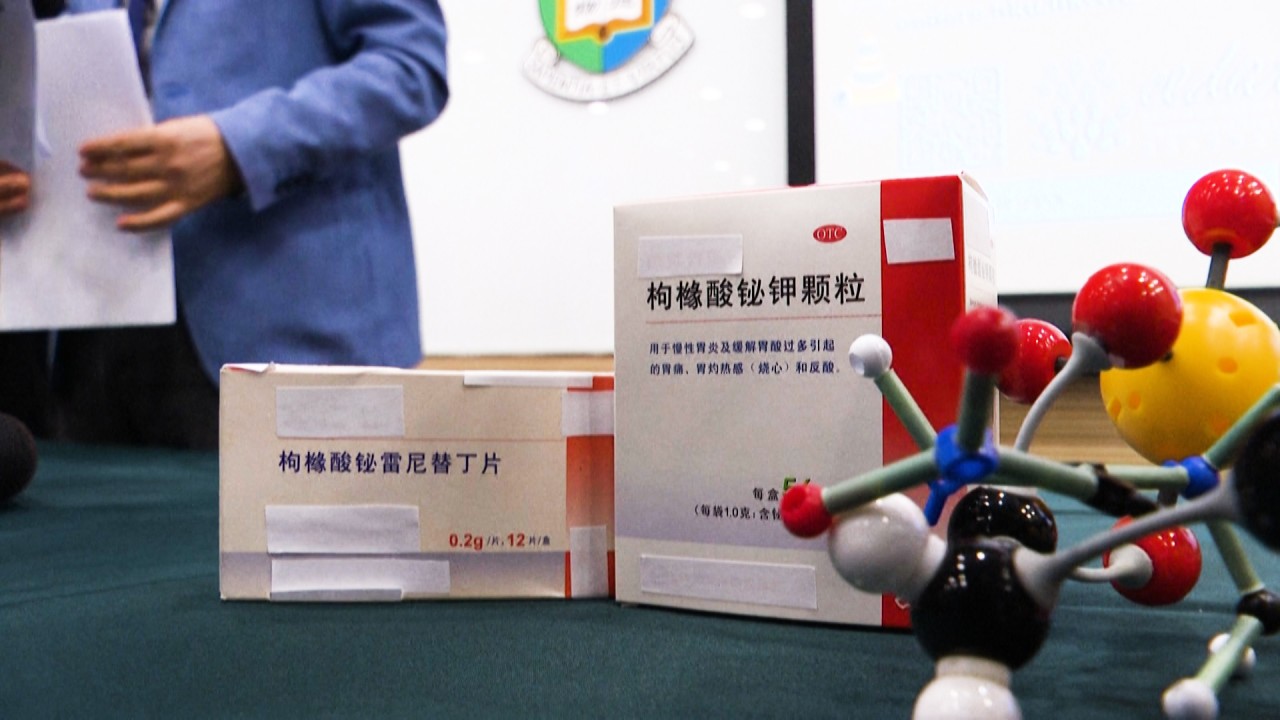
Hong Kong researchers find common ulcer drug could be effective in halting coronavirus replication in patients
- Researchers say the drug could be as effective as the new Covid-19 drug remdesivir, which is currently in short supply amid the pandemic
- The medication, which contains the metal bismuth, works by interrupting the process by which the virus replicates inside cells
A drug commonly used to treat stomach ulcers has shown promise in preventing the Sars-CoV-2 coronavirus from replicating in an animal model, a study by Hong Kong’s top university has found.
The findings of the research, led by University of Hong Kong (HKU) scientists and published in Nature Microbiology on Wednesday, could provide a new and readily available treatment option for Sars-CoV-2, the virus that causes the disease Covid-19.
The researchers said the drug, ranitidine bismuth citrate (RBC), could achieve similar outcomes to the coronavirus drug remdesivir, but at a lower cost.
RBC contains a metal called bismuth, which researchers said could reduce viral loads in coronavirus-infected human and animal cells to less than a thousandth of their previous levels.
Hong Kong researchers find three-drug combination quickly suppresses virus
In a hamster model, meanwhile, RBC was able to reduce viral loads to just one-hundredth of their previous levels in both the upper and lower respiratory tracts, and to mitigate virus-associated pneumonia.
“RBC shows potency comparable with remdesivir … It is safe and can be readily repurposed in clinical trials,” Dr Runming Wang, from HKU’s department of chemistry, said at a press conference on Monday.

01:48
Researchers in Hong Kong find ulcer drug could be effective in halting coronavirus replication
The team discovered that RBC can target the vital non-structural protein 13 (Nsp13), a viral helicase – a type of enzyme – that is essential for Sars-CoV-2 to replicate. They are believed to be the first to reveal that the helicase is targetable with drugs.
Wang said the helicase acted like scissors in the unwinding process of DNA by severing its double helix structure, leaving the resulting single-stranded DNA to serve as a template for the virus to be copied.
RBC and its bismuth compounds, however, kick out the zinc ions in the zinc-binding domain of the helicase, making it dysfunctional and unable to unwind DNA.
Inhaled vaccines in development in Hong Kong aim to fight coronavirus at point of attack
“Once the helicase doesn’t work, the virus will lose its ability to replicate or multiply,” Wang said.
Professor Hongzhe Sun, also of HKU’s department of chemistry, said any concerns of antiviral resistance were low.
“RBC targets the helicase and it cannot mutate too much, otherwise the cell will not survive,” he said. “It can be used in the form of drug cocktails that target multiple areas so it is harder for the virus to build resistance.”
Sun estimated the price of RBC was less than a quarter of that of remdesivir, which is in the midst of a global shortage and costs more than US$3,000 for a course.
The team said it has applied for a patent in the US to use RBC to treat Covid-19 patients.

